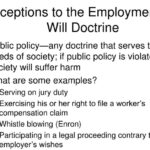INTRODUCTION
Tires Financing With Bad Credit refers to the process of obtaining funds to purchase new tires when you have a poor credit score. This financing can come from various sources, including retailers, credit cards, and personal loans.
Navigating tire financing with bad credit can be daunting, but it’s not impossible. With the right strategies and knowledge, you can secure the tires you need without breaking the bank or damaging your financial future.
Understanding Tires Financing
Tires Financing allows you to purchase tires and pay for them over time rather than upfront. This method can ease the financial strain of an unexpected tire replacement or upgrade. Typically, you’ll encounter several types of financing options:
- Retailer Financing: Many tire retailers offer in-house financing plans. These are usually designed for customers who may not have access to traditional credit. Retailer financing often includes special promotions like deferred interest or no payments for a certain period.
- Credit Cards: Some credit cards are tailored for automotive purchases and can be used to finance tires. They offer flexibility but can come with high interest rates if not paid off quickly.
- Personal Loans: You can also use personal loans from banks or online lenders to finance your tire purchase. This option might offer more favorable terms but requires a good credit score.
Understanding these options helps you choose the best fit based on your financial situation and credit standing.
ALSO READ : Demystifying Trade-Related Investment Measures: A Comprehensive Guide
Impact of Bad Credit on Financing Options
Bad credit significantly impacts your ability to secure favorable financing terms. When you have a poor credit score, lenders see you as a higher risk, which often results in:
- Higher Interest Rates: You’re likely to face higher interest rates, making the overall cost of financing more expensive. This is because lenders compensate for the increased risk of lending to someone with a lower credit score.
- Limited Financing Options: Many traditional lenders may deny your application outright or offer limited amounts. This can reduce your choices and make it harder to find a manageable payment plan.
- Less Favorable Terms: Even if you get approved, the terms might not be ideal. You may encounter shorter repayment periods or higher down payments.
Understanding these impacts helps you prepare for potential challenges and seek out the most viable options available to you.
Exploring Financing Options for Bad Credit
Despite the hurdles of bad credit, several financing options can help you purchase tires:
- Retailer Financing: Many tire retailers offer special financing for customers with poor credit. These plans might include deferred payment options or promotional no-interest periods. However, be cautious of high interest rates that could apply after the promotional period ends.
- Secured Credit Cards: Secured credit cards require a deposit that acts as collateral. They can help you build or rebuild your credit while providing a credit line to use for tire purchases. Just ensure you understand the fees and terms before applying.
- Buy Here, Pay Here Programs: Some tire shops offer buy here, pay here plans where you make payments directly to the retailer. These options might be easier to obtain but watch out for high costs and rigid payment terms.
- Personal Loans: If you have a stable income and can show you can manage a loan, personal loans might be available even with bad credit. Online lenders and peer-to-peer lending platforms can sometimes offer more lenient terms than traditional banks.
- Community Assistance Programs: Look for local organizations or charities that offer financial aid for essential expenses, including tires. They might provide low-interest loans or grants to help with the purchase.
By exploring these options, you can find a financing plan that fits your needs and budget, even with less-than-perfect credit.
Improving Your Chances of Getting Approved

To boost your chances of getting approved for tire financing with bad credit, focus on improving your credit profile and exploring alternative options. Start by checking your credit report for errors and paying off outstanding debts to increase your credit score.
Even small improvements in your credit can make a difference. Additionally, consider securing a co-signer with better credit who can vouch for your reliability. Another strategy is to demonstrate a stable income and a history of timely payments, which can reassure lenders of your ability to repay.
Lastly, explore financing options designed specifically for those with bad credit, such as secured credit cards or specialized loans, which might offer more lenient approval criteria.
What to Look For in Financing Offers
When evaluating tire financing offers, scrutinize several key factors to ensure you’re getting the best deal. First, compare interest rates and fees, as these can significantly impact the total cost of your financing. Look for offers with competitive rates and minimal additional charges.
Next, pay attention to the repayment terms, including the length of the loan and the frequency of payments. Choose a plan that fits comfortably within your budget. Additionally, check for any hidden fees, such as prepayment penalties or late payment charges, which can add up over time. Finally, read the fine print of the agreement to understand all terms and conditions, ensuring there are no surprises down the road.
How Bad Credit Financing Works With Tire Agents
When dealing with bad credit financing through tire agents, the process often involves working with specialized lenders or financing programs tailored for individuals with poor credit histories. Tire agents may partner with lenders who offer in-house financing or collaborate with third-party financial institutions that understand the challenges of bad credit.
These financing options might include higher interest rates and less favorable terms but can be more accessible than traditional loans. The agent typically assists in evaluating your financial situation and matching you with suitable financing options. They can also guide you through the application process and help you understand the terms of your agreement.
Despite the higher costs, working with a tire agent who specializes in bad credit financing can help you secure the necessary funds for your tire purchase while navigating the complexities of poor credit financing.
Alternatives to Traditional Financing
If traditional financing isn’t an option, consider alternative methods to manage your tire purchase. Layaway plans allow you to reserve tires and pay in installments before taking them home, making it easier to budget without incurring debt. Community assistance programs may also offer financial aid for essential needs like tire replacements. These programs, often run by local charities or nonprofits, can provide low-interest loans or grants to help with the cost. Exploring these alternatives can offer flexible solutions for obtaining tires without relying on conventional credit-based financing.
Conclusion :
Navigating tire financing with bad credit can be challenging, but understanding your options and improving your credit profile can make a significant difference. By exploring alternatives like layaway plans and community assistance programs, you can find a solution that fits your budget and needs. Stay informed, compare offers carefully, and seek the best terms to ensure you secure the tires you need without compromising your financial stability.







